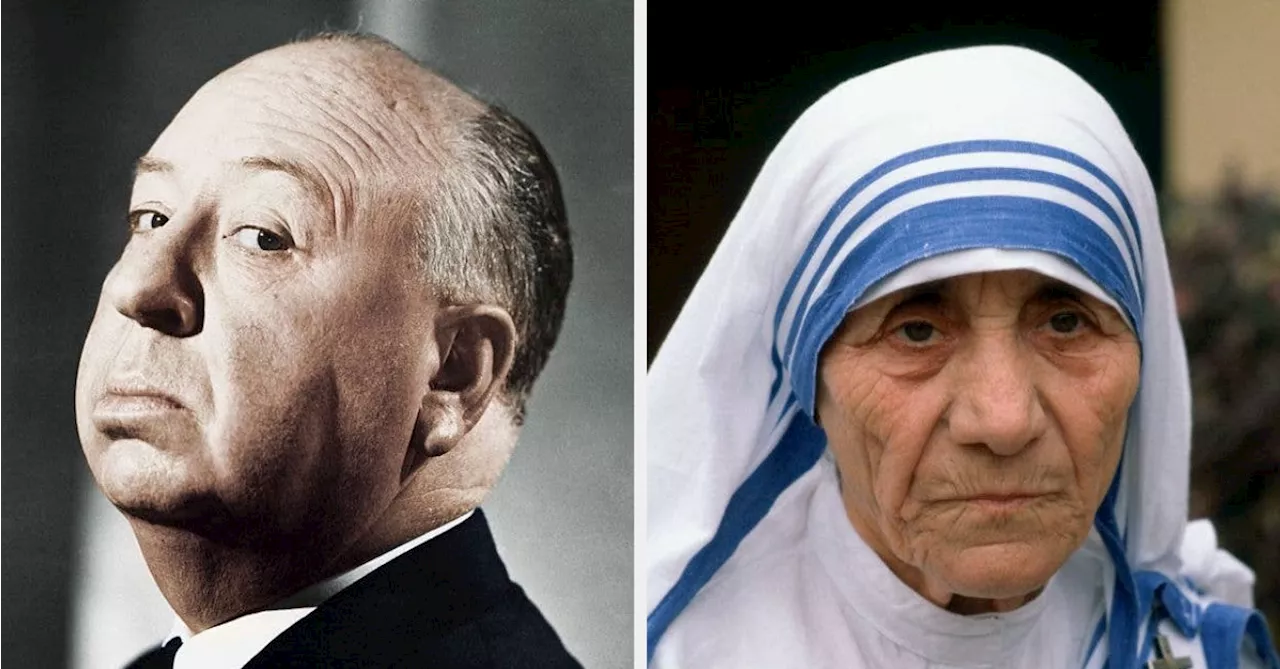Politics
Controversial Legacies: Celebrated Figures with Dark Histories

The legacies of several iconic figures are marred by troubling actions in their pasts. While many are celebrated for their contributions to art, technology, or culture, a closer examination reveals a darker side. This article explores how certain well-known personalities, including Steve Jobs and Coco Chanel, are remembered differently than their complicated histories suggest.
Steve Jobs: Visionary or Troubling Figure?
Steve Jobs, co-founder of Apple Inc., is often lauded for his role in revolutionizing technology and design, particularly with the creation of the iPhone. Yet, his legacy is complex. In the mid-1970s, while working with Steve Wozniak, Jobs misled his partner about their earnings from Atari, claiming they made $700 while he secretly pocketed a $5,000 bonus.
Jobs’s personal life was equally tumultuous. He denied paternity of his first daughter, Lisa Brennan-Jobs, for years, maintaining a distant relationship with both her and her mother. His perfectionist tendencies often came at the expense of empathy for others. Later in life, Jobs made controversial health decisions, opting for alternative therapies over conventional cancer treatments, which ultimately contributed to his untimely death in 2011.
Fashion Icons with Troubling Histories
The fashion industry also has its share of controversial figures. Coco Chanel, renowned for transforming women’s fashion, had ties to the Nazi regime during World War II. Her romantic involvement with a German intelligence officer and her anti-Semitic views remain significant blemishes on her legacy. Chanel’s business dealings during the war, including taking full control of her perfume brand from Jewish owners, cast a long shadow over her contributions to fashion.
Similarly, Hugo Boss founded a company that produced uniforms for Nazi organizations, including the SS and Hitler Youth. His factory employed forced labor during the war, and he faced fines for his involvement after the conflict. Though the brand eventually became synonymous with high fashion, its origins are rooted in a dark chapter of history.
Artistic Geniuses with Dark Side
In the realm of art, figures like Pablo Picasso and Alfred Hitchcock are celebrated for their genius yet criticized for their treatment of women. Picasso, often hailed as one of the greatest artists of the 20th century, was known for his emotionally abusive relationships with his partners. His former lovers described experiences of humiliation and manipulation, raising questions about the price of his creativity.
Similarly, Alfred Hitchcock, a master of suspense, had a reputation for abusive behavior on set. He was known to manipulate and humiliate actresses, pushing them to emotional extremes in pursuit of his visions. The legacy of these artists is complicated by their personal lives, which often contradicted the values they portrayed in their work.
Unpacking the Legacies of Cultural Icons
Other notable figures, such as John Wayne and Jerry Lee Lewis, have left behind controversial legacies. Wayne, an emblem of American masculinity, expressed white supremacist views and dismissed the suffering of Native Americans. Meanwhile, Lewis faced significant backlash for marrying his 13-year-old cousin, a scandal that nearly ruined his career at the time.
The Kennedy family also faced scrutiny, particularly concerning Rosemary Kennedy. At 23, she underwent a lobotomy arranged by her father without her mother’s knowledge, resulting in lifelong disabilities. This incident highlights the darker aspects of a family often idealized in American history.
Even revered figures like Mother Teresa are not immune to criticism. Despite her charitable work, reports from former volunteers and medical professionals suggest that her organization often failed to provide adequate medical care. Her legacy is thus viewed with skepticism by some, despite widespread admiration.
As these examples illustrate, the complexities of human behavior often contradict the public personas of celebrated figures. While their contributions to society cannot be denied, acknowledging the darker aspects of their legacies is essential for a more comprehensive understanding of their impact on history.
-

 Science1 month ago
Science1 month agoIROS 2025 to Showcase Cutting-Edge Robotics Innovations in China
-

 Science2 weeks ago
Science2 weeks agoUniversity of Hawaiʻi at Mānoa Joins $25.6M AI Initiative for Disaster Monitoring
-

 Lifestyle1 month ago
Lifestyle1 month agoStone Island’s Logo Worn by Extremists Sparks Brand Dilemma
-

 Health1 month ago
Health1 month agoStartup Liberate Bio Secures $31 Million for Next-Gen Therapies
-

 Lifestyle1 month ago
Lifestyle1 month agoMary Morgan Jackson Crowned Little Miss National Peanut Festival 2025
-

 Health1 month ago
Health1 month agoTop Hyaluronic Acid Serums for Radiant Skin in 2025
-

 World1 month ago
World1 month agoBravo Company Veterans Honored with Bronze Medals After 56 Years
-

 Politics1 month ago
Politics1 month agoJudge Considers Dismissal of Chelsea Housing Case Citing AI Flaws
-

 Science1 month ago
Science1 month agoArizona State University Transforms Programming Education Approach
-

 Business1 month ago
Business1 month agoTruist Financial Increases Stake in Global X Variable Rate ETF
-

 Sports1 month ago
Sports1 month agoYamamoto’s Mastery Leads Dodgers to 5-1 Victory in NLCS Game 2
-

 Top Stories1 month ago
Top Stories1 month agoIndonesia Suspends 27,000 Bank Accounts in Online Gambling Crackdown








